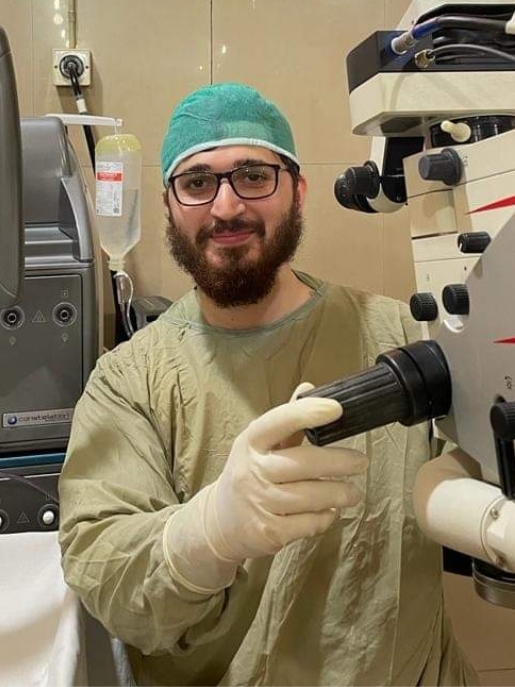Vitreous Haemorhage
Lahore Laser Eye Center is renowned as the premier eye center in Lahore, Pakistan, offering exceptional eye care services. With a team of highly skilled ophthalmologists and state-of-the-art technology, they offer the best possible care for patients seeking Vitreous Haemorhage Surgery.
Vitreous Haemorhage
Vitreous hemorrhage is a condition characterized by bleeding into the vitreous gel, the clear, gel-like substance that fills the center of the eye. This can cause sudden vision disturbances and requires immediate medical attention. This article provides an informative overview of vitreous hemorrhage, exploring its causes, symptoms, risk factors, and available treatment options.
Causes of Vitreous Hemorrhage
Vitreous hemorrhage can occur due to various underlying causes. The most common cause is the development of abnormal blood vessels in the retina, often associated with conditions like diabetic retinopathy or age-related macular degeneration. Additionally, severe eye trauma or injury, retinal tears or detachments, and certain eye disorders can also lead to vitreous hemorrhage. Understanding the cause of the hemorrhage is crucial for determining the appropriate course of treatment.
Recognizing the Symptoms
The primary symptom of vitreous hemorrhage is sudden, painless vision loss or a sudden increase in the number of floaters, which are small dark spots or lines that appear in the visual field. Some individuals may also experience flashes of light. It is important to note that these symptoms can also be associated with other eye conditions, making it essential to seek immediate evaluation by an eye care professional for accurate diagnosis and prompt treatment.

Risk Factors and Prevention
Certain risk factors can increase the likelihood of developing vitreous hemorrhage. As mentioned earlier, individuals with conditions like diabetic retinopathy, age-related macular degeneration, and sickle cell disease are at a higher risk. High blood pressure and severe nearsightedness (myopia) can also be contributing factors. Regular eye examinations, especially for those at higher risk, can aid in early detection and may help prevent severe vision loss.
Diagnosing Vitreous Hemorrhage
Diagnosing vitreous hemorrhage typically involves a comprehensive eye examination, including a dilated eye exam. During this examination, an eye care professional will assess the retina and vitreous to determine the extent of bleeding and identify any underlying conditions. In some cases, additional imaging tests, such as optical coherence tomography (OCT) or fluorescein angiography, may be used to provide more detailed information.
Treatment Options
The treatment for vitreous hemorrhage depends on its severity and the underlying cause. In mild cases, the hemorrhage may resolve on its own with time as the blood is reabsorbed by the body. However, if the bleeding is significant or persistent, intervention may be required. Treatment options include vitrectomy, a surgical procedure to remove the vitreous gel and replace it with a clear solution, or laser photocoagulation to seal leaking blood vessels in the retina.
Recovery and Prognosis
The recovery and prognosis for vitreous hemorrhage depend on the extent of bleeding and the success of treatment. While some individuals may experience a gradual improvement in vision over time, others may have varying degrees of permanent vision loss. Post-treatment follow-up visits with an eye specialist are essential to monitor progress and address any complications that may arise during the recovery period.
Conclusion
Vitreous hemorrhage is a condition that necessitates immediate attention to prevent severe vision loss. Understanding its causes, recognizing the symptoms, and identifying risk factors can help individuals seek timely medical intervention. Regular eye exams and early treatment are crucial for managing vitreous hemorrhage effectively, underscoring the importance of proactive eye care for everyone, especially those at higher risk of developing this condition.
Dr. Hamza Ali Tayyab, an esteemed eye surgeon, is recognized for his expertise and exceptional patient care at Doctors Hospital and Medical Center in Lahore. With extensive experience in the field, Dr. Tayyab is known for his precision, skill, and commitment to providing the best possible outcomes for his patients. If you are seeking top-notch Vitreous Haemorhage treatment, don’t hesitate to book an appointment with Dr. Hamza Ali Tayyab and benefit from his unparalleled expertise.
Call us for an appointment
0326-3777752
Feel free to contact us.
info@lahorelasereyecenter.com
Reach to us via our location
View Map
